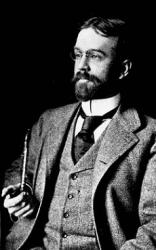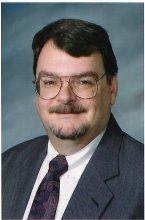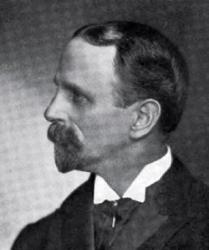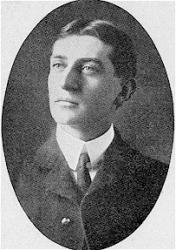Planning worship?
Check out our sister site, ZeteoSearch.org,
for 20+ additional resources related to your search.
- |
User Links
Person Results
Frederic Field Bullard

1864 - 1904 Person Name: Frederic F. Bullard Composer of "TENEOR" in The Pilgrim Hymnal
Frederic Field Bullard
Alain Rocourt
Person Name: A. R. Translator of "O Love that wilt not let me go (Amou ki pap kitém alé)" in An Nou Chanté! Rev. Alain Rocourt, as cited in An Nou Chanté.
Alain Rocourt
Johann Sebastian Bach

1685 - 1750 Person Name: Johann Sebastian Bach, 1685 - 1750 Harmonizer of "ES IST GEWISSLICH" in The Hymn Book of the Anglican Church of Canada and the United Church of Canada Johann Sebastian Bach was born at Eisenach into a musical family and in a town steeped in Reformation history, he received early musical training from his father and older brother, and elementary education in the classical school Luther had earlier attended.
Throughout his life he made extraordinary efforts to learn from other musicians. At 15 he walked to Lüneburg to work as a chorister and study at the convent school of St. Michael. From there he walked 30 miles to Hamburg to hear Johann Reinken, and 60 miles to Celle to become familiar with French composition and performance traditions. Once he obtained a month's leave from his job to hear Buxtehude, but stayed nearly four months. He arranged compositions from Vivaldi and other Italian masters. His own compositions spanned almost every musical form then known (Opera was the notable exception).
In his own time, Bach was highly regarded as organist and teacher, his compositions being circulated as models of contrapuntal technique. Four of his children achieved careers as composers; Haydn, Mozart, Beethoven, Mendelssohn, Schumann, Brahms, and Chopin are only a few of the best known of the musicians that confessed a major debt to Bach's work in their own musical development. Mendelssohn began re-introducing Bach's music into the concert repertoire, where it has come to attract admiration and even veneration for its own sake.
After 20 years of successful work in several posts, Bach became cantor of the Thomas-schule in Leipzig, and remained there for the remaining 27 years of his life, concentrating on church music for the Lutheran service: over 200 cantatas, four passion settings, a Mass, and hundreds of chorale settings, harmonizations, preludes, and arrangements. He edited the tunes for Schemelli's Musicalisches Gesangbuch, contributing 16 original tunes. His choral harmonizations remain a staple for studies of composition and harmony. Additional melodies from his works have been adapted as hymn tunes.
--John Julian, Dictionary of Hymnology (1907)
Johann Sebastian Bach
George Matheson

1842 - 1906 Author of "O Love That Wilt Not Let Me Go" in The Presbyterian Hymnal Matheson, George, D.D., was born at Glasgow, March 27, 1842, and although deprived of his eyesight in youth he passed a brilliant course at the University of Edinburgh, where he graduated M.A. in 1862. In 1868 he became the parish minister at Innellan; and subsequently of St. Bernard's, Edinburgh. He was the Baird Lecturer in 1881, and St. Giles Lecturer in 1882. He has published several important prose works. His poetical pieces were collected and published in 1890 as Sacred Songs, Edinburgh: W. Blackwood. In addition to his hymn "O Love that wilt not let me go" (q. v.), four others from his Sacred Songs are in Dr. A. C. Murphey's Book of Common Song, Belfast, 1890.
--John Julian, Dictionary of Hymnology, Appendix, Part II (1907)
=======================
Matheson, G., p. 1579, i. In addition to Dr. Matheson's hymn, "O Love, that wilt not let me go," p. 1583, i,, the following from his Sacred Songs, 1890, have come into common use since 1892:—
1. Come, let us raise a common song. Brotherhood.
2. Father divine, I come to Thee. Strength for Life. This, in Horder's Worship Song, 1905, is altered to”Saviour divine, I come to Thee."
3. Gather us in, Thou Love that fillest all. One in Christ.
4. Jesus, Fountain of my days. Christian's Polestar.
5. Lend me, O Lord, Thy softening cloud. The Fire and the Cloud. In the Sunday Magazine, 1875.
6. Lord, Thou hast all my frailty made. Strength for the Day.
7. Make me a captive, Lord. Christian Freedom.
8. There are coming changes great. The Glad New Time.
9. Three doors there are in the temple. Prayer.
Dr. Matheson informed us that these hymns, together with the rest of his Sacred Songs, 1890, were written at Bow, Dumbartonshire, in 1890. The 3rd ed. of the Sacred Songs was published in 1904. He died suddenly at Avenelle, North Berwick, Aug. 28, 1906.
--John Julian, Dictionary of Hymnology, New Supplement (1907)
George Matheson
Thoro Harris

1874 - 1955 Composer of "MATHESON" in The Wesleyan Methodist Hymnal Born: March 31, 1874, Washington, DC.
Died: March 27, 1955, Eureka Springs, Arkansas.
Buried: International Order of Odd Fellows Cemetery, Eureka Springs, Arkansas.
After attending college in Battle Creek, Michigan, Harris produced his first hymnal in Boston, Massachusetts, in 1902. He then moved to Chicago, Illinois at the invitation of Peter Bilhorn, and in 1932, to Eureka Springs, Arkansas. He composed and compiled a number of works, and was well known locally as he walked around with a canvas bag full of handbooks for sale. His works include:
Light and Life Songs, with William Olmstead & William Kirkpatrick (Chicago, Illinois: S. K. J. Chesbro, 1904)
Little Branches, with George J. Meyer & Howard E. Smith (Chicago, Illinois: Meyer & Brother, 1906)
Best Temperance Songs (Chicago, Illinois: The Glad Tidings Publishing Company, 1913) (music editor)
Hymns of Hope (Chicago, Illinois: Thoro Harris, undated, circa 1922)
--www.hymntime.com/tch
Thoro Harris
Ralph Manuel

b. 1951 Composer of "DONNA" in Celebrating Grace Hymnal
Rev. Ralph Manuel, Minister of Music
Fresh from the tropical climes of Brazil, Ralph Manuel took on the mantle as HBC's Minister of Music in February 2004. Ralph and his family have quickly become an important part of the church family, reaching out to members and visitors with a message in music.
A native of Oklahoma City, Ralph has also lived in Fort Worth, Texas; Walnut Ridge, Arkansas and Recife, Brazil. He received a Bachelor of Music degree from Oklahoma City University and a Masters of Church Music from Southwestern Baptist Theological Seminary.
For 24 years, Ralph and his wife Donna served as missionaries to Brazil. Ralph taught at North Brazil Baptist Theological Seminary and worked at the Imperial Baptist Church of Recife. In this capacity, he assisted churches in their music ministry and led musical groups that went into the community to share the message of the gospel.
Ralph is an accomplished pianist and a published composer and arranger of sacred choral, vocal and keyboard music. His compositions are used in churches around the world, including the National Cathedral in Washington, D.C. He was awarded the Arthur Lakschevitz prize from the Association of Baptist Musicians of Brazil for outstanding contribution to church music among Brazilian Baptists. In 2002, he was chosen to write the commissioned anthem for the Baptist Church Music Conference in Memphis.
Ralph and Donna have two teenagers-James and Melissa. Ralph's hobbies include playing the piano and collecting old hymnals. His favorite hymns are "Blessed Assurance" because of its exuberant nature and "Redeemed" because of its solid affirmation of a joyful faith. His favorite Bible passage is Psalm 103, particularly the middle verses which express the Lord's continuing love for us despite our unworthiness.
--www.heritagebaptistonline
Ralph Manuel
Walter Henry Hall

1862 - 1935 Composer of "MALLETT" in The Hymnal Born: April 25, 1862, London, England.
Died: 1938, New York City.
Buried: Boothbay Harbor, Maine, the location of his summer home.
Hall studied at the Royal Academy of Music for four years under George Macfarren, H. C. Bannister, Charles Steggall, and others. He emigrated to America in 1883, where he was organist and choirmaster at St. Luke’s Church, Germantown, Pennsylvania; St. Peter’s Church, Albany, New York; Church of the Heavenly Rest, New York City; St. James’ Church, New York City; and Cathedral of St. John the Divine, New York City. He founded and conducted the Brooklyn Oratorio Society, and founded the Cathedral Festival Choir. His works include:
Essentials of Choir Boy Training
--www.hymntime.com/tch/
Walter Henry Hall
George H. Carr
Composer of "[O Love that wilt not let me go]" in Songs of Redemption and Praise. Rev. 20th Century
George H. Carr
J. D. Brunk

1872 - 1926 Person Name: John D. Brunk Composer of "[O Love that wilt not let me go]" in Life Songs John David Brunk born in Virginia, died in Indiana
Dianne Shapiro, from Find a Grave website (accessed 6/20/2022)
J. D. Brunk


 My Starred Hymns
My Starred Hymns


